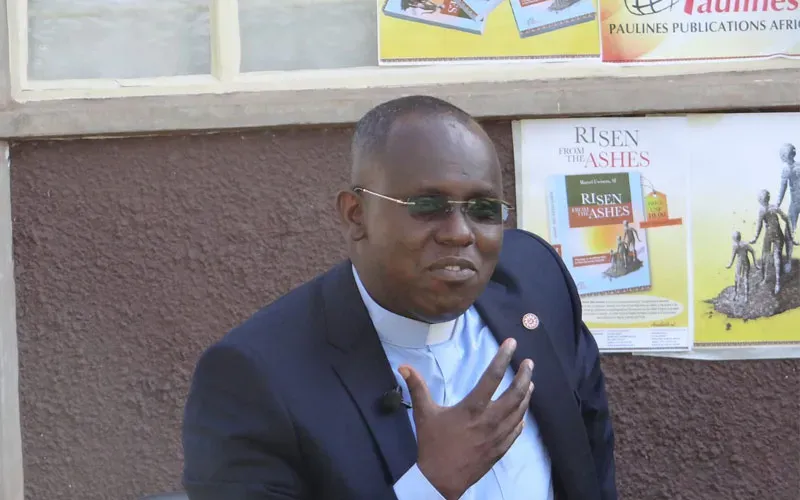Fr. Uwineza underlines the need for Rwanda to engage with its history, painful as it may be.
“After the genocide, we stopped teaching the history of Rwanda because the history we had was very divisive. But we can’t continue ignoring our past if we have to move forward,” he says, and adds, “Messy as it has been, it is our past. We therefore must engage it and own it. We all were wounded and therefore, we need constructive history that will unite us.”
To heal, Rwanda also needs “a prophetic Church”, the Jesuit Priest who researches on ecclesiology, genocide studies, religion and ethics, among other topics told ACI Africa during the April 14 interview.
“At the time of the genocide, the Rwandan Population was around 80 percent Christian. Yet all these merciless killings happened, some at religious places. As a Church, we must stop and ask ourselves what went wrong,” Fr. Uwineza said.
“We must develop a theology of hope and reparation that looks back to where we went wrong and one that envisions a better future so that these things are not repeated,” he further said.
(Story continues below)
He continued, “We must also acknowledge that some leaders in the Church made mistakes and that they do not represent the Church. We must also recognize Christian heroes who were killed trying to save lives.”
According to the Rwandan Catholic Priest, a prophetic Church must also look at who is missing at the table of dialoguing into a better future. “Are women included at this table given that they have made a lot of contribution in the civil society spaces,” he poses.
On April 11, Fr. Uwineza gave an address at the Villanova University on the topic “Women peacebuilders in Rwanda since Genocide”, highlighting how a section of the Rwandan women affected by the genocide have risen above their wounds to contribute to the healing process of the landlocked country in the Great Rift Valley of Central Africa, where the African Great Lakes region and Southeast Africa converge.
He said that since the genocide, the status of Rwandan women has improved. “Alongside their male counterparts, women chose to look beyond the horizon of tragedy. Women’s participation in associations, credit groups and farm cooperatives has grown greatly,” Fr. Uwineza said, adding that women in the Rwandan Parliament have promoted laws that protect women against gender-based violence (GBV).
Additionally, after the genocide, women joined support groups and organizations such as Pro-femmes (in support of women), an advocacy organization for women; Abasa, an Association of women who were the sole survivors of the genocide in their families; and Ineza, a sewing cooperative of women living with HIV as a result of the genocide.
“These women created a new landscape where they could breathe new air through their work and sharing of experiences. Others forged a new future for their children,” Fr. Uwineza told ACI Africa on April 14.
Agnes Aineah is a Kenyan journalist with a background in digital and newspaper reporting. She holds a Master of Arts in Digital Journalism from the Aga Khan University, Graduate School of Media and Communications and a Bachelor's Degree in Linguistics, Media and Communications from Kenya's Moi University. Agnes currently serves as a journalist for ACI Africa.








